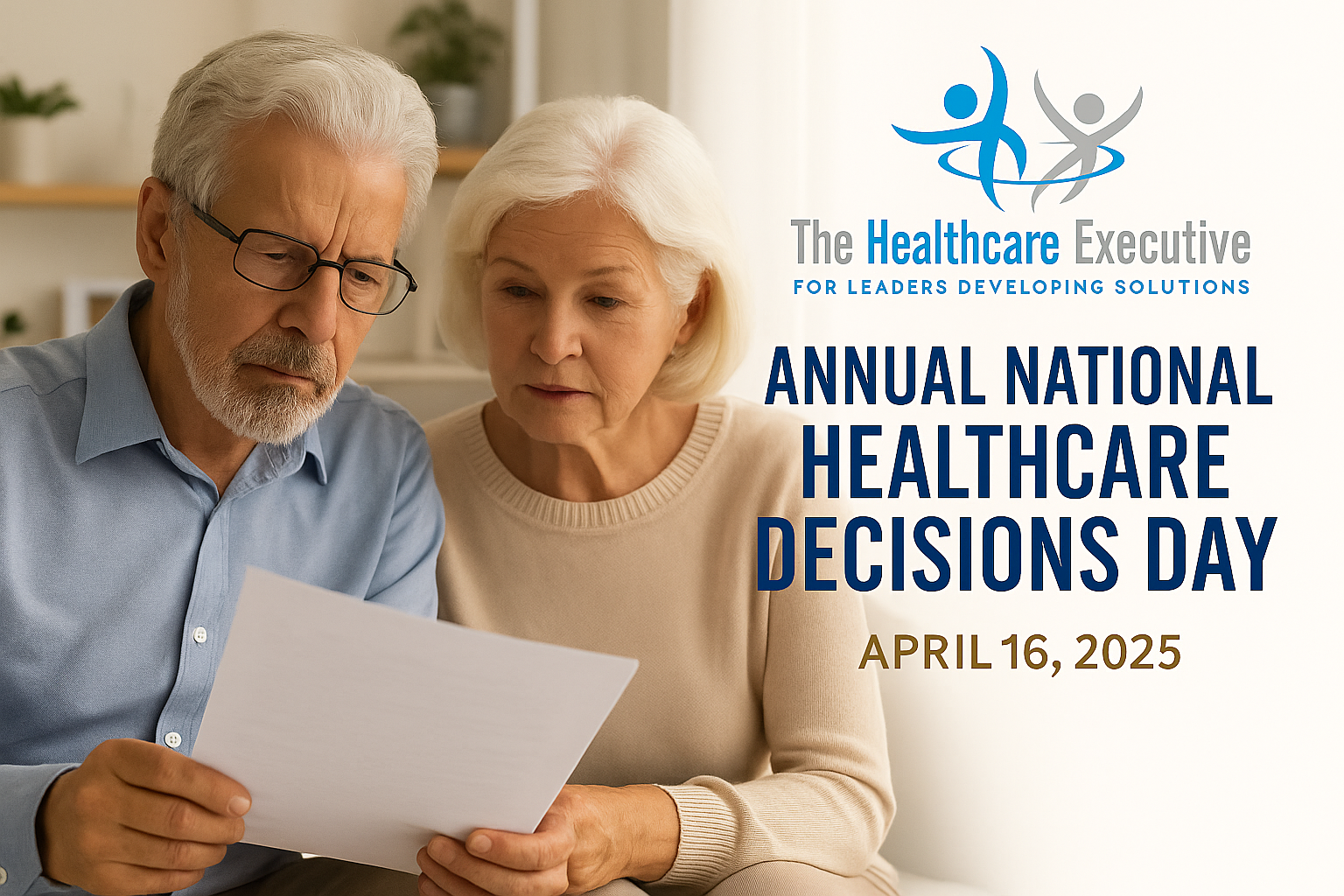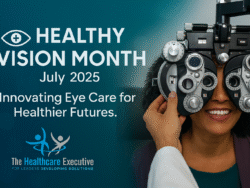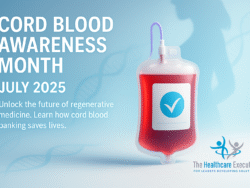Annual National Healthcare Decisions Day | April 16, 2025

- Posted by Greg Wahlstrom, MBA, HCM
- Posted in Health Observance Calendar
Empowering Informed Choices Through Executive-Backed Advance Care Planning
Published: April 16, 2025
Observed every year on April 16, Annual National Healthcare Decisions Day (NHDD) raises awareness of the importance of advance care planning and encourages all individuals—patients, caregivers, and clinicians alike—to engage in meaningful conversations about future healthcare choices. Originally founded by The Conversation Project and the National Hospice and Palliative Care Organization, NHDD highlights the ethical, cultural, and operational significance of documented care preferences. For hospital executives, this day represents more than a community education campaign—it’s a vital opportunity to assess how systematically and compassionately their organizations are supporting patient autonomy and shared decision-making. Institutions like Mass General Hospital have led efforts to embed advance directives into their EHR workflows and integrate clinical decision support tools to guide conversations. Executives must ask: Are our systems honoring patients’ values or merely documenting them?
Healthcare leaders carry the responsibility of translating this observance into operational action. Effective advance care planning requires interdisciplinary collaboration between physicians, nurses, social workers, chaplains, and legal counsel. It also demands that hospitals and health systems address disparities in access to culturally competent resources. According to the National Hospice and Palliative Care Organization, underserved populations are significantly less likely to complete advance directives due to distrust, limited health literacy, and lack of accessible information. Executive teams must ensure that their policies, forms, and outreach efforts reflect the diverse populations they serve. Language accessibility, interpreter services, and trauma-informed care frameworks are essential to equity in care planning. NHDD serves as a catalyst for leadership to recommit to inclusive strategy—not just compliance.
Technology plays a powerful role in shaping how and when healthcare decisions are captured and respected. Patient portals, mobile apps, and EHR-integrated templates offer scalable ways to promote advance care planning. However, digital tools must be thoughtfully designed and governed to protect confidentiality while facilitating timely access to critical preferences. At UW Medicine, advance care documents are directly integrated into clinical pathways, enabling real-time alerts and physician reminders. Hospital CIOs and CMOs should use NHDD to evaluate how well technology is supporting—not replacing—conversation. Leaders must also review policies on who can view, edit, and update documentation. Patients’ voices must remain the source of truth, and those voices need to be embedded throughout the continuum of care. NHDD is not just about forms—it’s about continuity, clarity, and honoring intent.
Legal and ethical frameworks surrounding healthcare decisions continue to evolve—and hospital governance must stay ahead. Executives should ensure their organizations are aligned with current state and federal laws, including informed consent statutes, end-of-life options acts, and durable power of attorney regulations. Boards of directors should review institutional compliance with advance directive policies, staff training on goals-of-care conversations, and liability protections for clinicians honoring patient wishes. Organizations like The Conversation Project provide valuable resources for embedding care planning into systemwide practice. NHDD is an ideal time for executive briefings, policy audits, and legal updates to be shared at the governance level. When policy, practice, and purpose are aligned, hospitals foster trust—and trust is the foundation of ethical care.
As Annual National Healthcare Decisions Day concludes, the role of executive leadership in advancing this work remains clear. Leaders can highlight system progress through internal campaigns, community forums, and provider spotlights. Communications teams can share patient stories, clarify myths, and promote available tools. Clinical and administrative champions should be recognized, and performance targets tied to documented preferences should be tracked. At its core, NHDD is about dignity—ensuring that care aligns with what matters most to each individual. When hospitals lead with empathy and strategy, they help create a future where every voice is heard, and every decision is honored.
Discover More
Explore how executives are advancing ethical, inclusive, and system-wide approaches to advance care planning and patient-centered decision-making.



